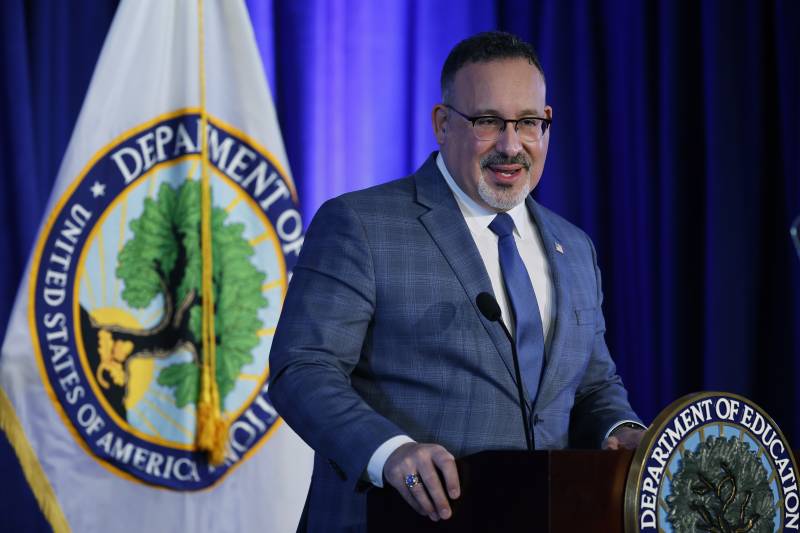The Biden administration is cracking down on college programs that don’t adequately prepare graduates for gainful employment. On Wednesday, the U.S. Education Department announced new federal regulations that aim to hold for-profit colleges accountable for student outcomes.
“Higher education is supposed to be an invaluable investment in your future. There is nothing valuable about being ripped off or sold on a worthless degree,” Education Secretary Miguel Cardona said at a press briefing announcing the final rules.
The gainful employment rule is meant to safeguard students from making a bad investment at for-profit institutions and non-degree, certificate programs. If programs don’t earn their graduates adequate pay, or if graduates’ earnings are too low to afford their student loan payments, programs could lose access to federal money.

